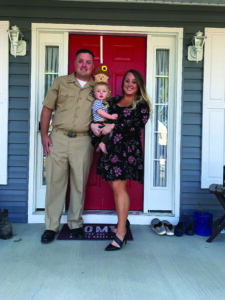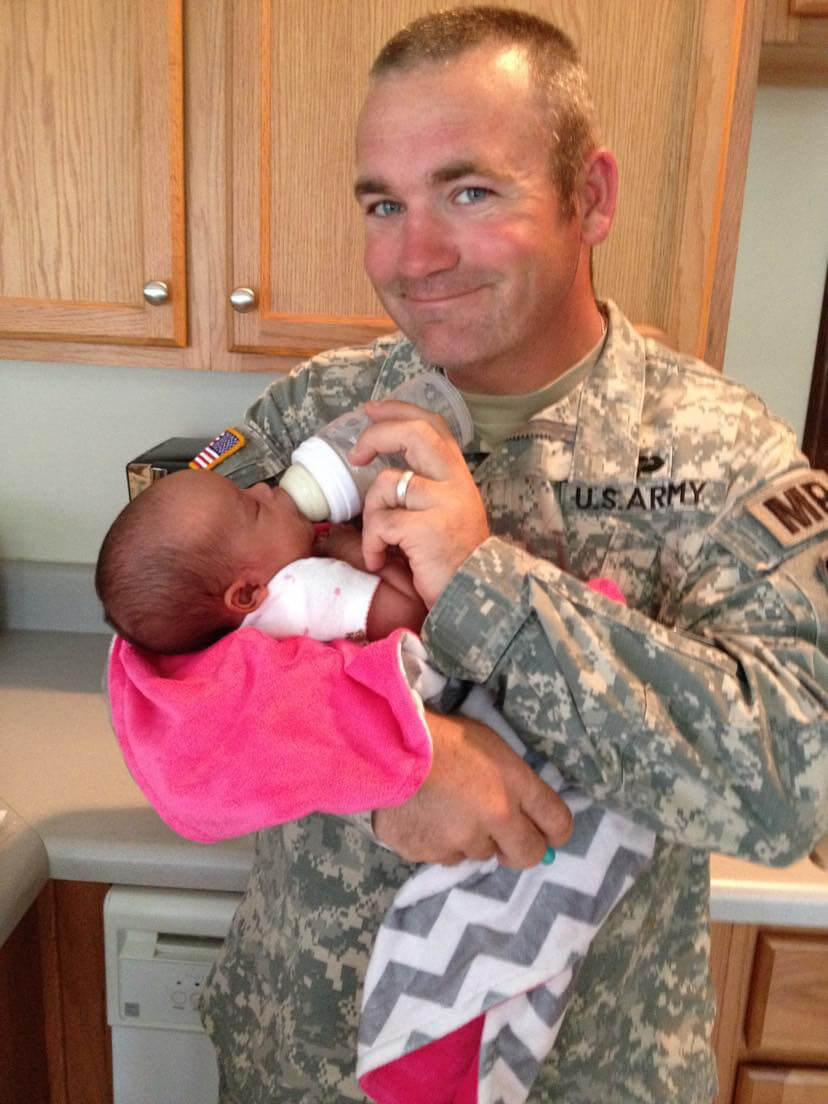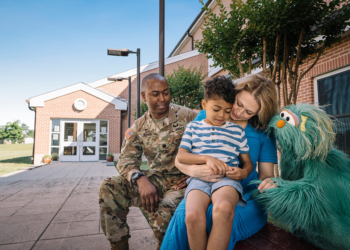New Army couple Nick and April Sheets thought they would have to give up the life they had established as a foster family when they joined the military. But a social worker was the first to say that’s not the case.
Military members and their spouses can indeed foster disadvantaged children — even while on active duty, living on base and with the potential of deploying.
“I believe the mission of the military is very close to the mission of foster care,” April said. “Children get left behind in the system, and it’s our job to make sure they have a loving, warm and supportive home to go to at night.”
The Sheets family has been licensed in Texas, Virginia and North Carolina, fostering 28 children in total, even after PCSing. They are part of a small group of military foster families around the States. Roughly 2,000 military families also foster or are seeking to adopt, according to DOD data from 2016-20.

Kelly Sprout and her husband, Robert, were one of those families, fostering 10 children and adopting two before Robert retired from the Navy in 2021. Like the Sheets family, they had long assumed that fostering and active-duty military service were mutually exclusive. But then they met a military foster family while stationed in Hawaii.
“All you hear is that you can’t, because you move too much or because of deployments, which is not true,” Sprout said. “It’s probably why we had never heard of anyone fostering in the military until we met our friends.”
Military members and their spouses’ motivations for fostering are the same as anyone else’s, Sheets and Sprout said: they want to help children from birth to 18 whose parents are struggling. The process to become licensed is also nearly identical to a civilian’s. Single parents and couples ages 21 and older go through background checks and medical assessments, complete licensure classes and open their houses for a home study, according to Military OneSource.
The only extra steps for military families are disclosing how much time they have left in a certain location (most foster agencies prefer families with at least one year remaining at their current assignment) and when the service member(s) might deploy, alongside informing base housing (if applicable). Military OneSource also states that foster children are eligible to live on military installations, though they do not typically use base medical care or schools and do not travel to overseas assignments. Military spouses can still foster while their partner is deployed.
However, since foster care agencies operate by state, foster children cannot remain with a military family when PCSing across state lines, unless the family is already in the process of adopting them. That means that military foster families might have to “give back” their foster children when moving to new assignments.
“I hate that part,” Sheets said. “And I think the hardest thing I’ve come across is that every time we move, the new states don’t recognize your certification and we have to redo almost everything again.”
That means repeated classes and background/medical checks.

Similarly, Navy wife Amber Edington and her husband had to drive to Arkansas from Virginia to obtain his driving record for their foster care licensure. Remembering every place they had lived and obtaining references from people who knew them well wasn’t easy either, she said — but it’s worth it.
“Me and my husband both believe that children belong in families, and if we can be that family, then why not?” Edington said. “The military lifestyle is already stressful, but we know we need to help these children and we have the ability, so we’re going to do it.”
Before you foster
Ready to become a military foster family? Here are some pro tips from Sheets, Sprout and Edington:
- Discuss the prospect with your partner, including the challenges of fostering (trauma behaviors, addictions, difficulty navigating legal systems, heartbreak, etc.). If both of you are not on the same page, things can go south quickly.
- Consider your family’s situation, including jobs and children already at home. What ages and abilities of foster children might fit best?
- Look at how much time you have remaining at your current duty station (at least one year, ideally) and any upcoming deployments.
- To begin the process, call or email your state’s specific agency that licenses foster parents. Find yours at childwelfare.gov, or google “How to become a foster parent in” your state.
- Get plugged into resources for military foster families, including Military OneSource and the Facebook group “{US Military Families} Adoption, Foster Care & Kinship Care Support.”











































